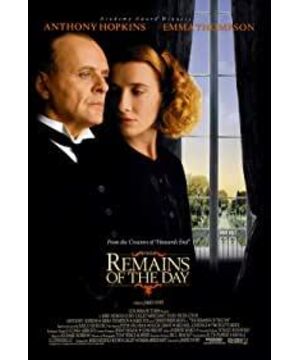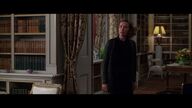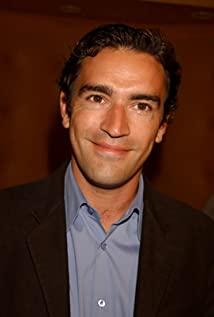The film is adapted from the novel "The Long Days Will End" (Leave a Trace of the Past) by Kazuo Ishiguro, a Japanese-British writer. The original British elegance of the film hides the author's turbulent hometown feelings. The protagonist of the film, Mr. Steven, is an extremely decent butler who is in charge of the major affairs of the duke's house. With the arrival of the new housekeeper, Steven, who has always been restrained, finally has an imperceptible change. The director spent more than half of the film to lay out the wartime situation of the Duke's Mansion. The translated title Farewell to the Love of Love seems incompatible with the plot at first glance, but with the gradual progress of the layout, the deep meaning of the title also gradually emerges.
After the deputy butler eloped with the former housekeeper, Steven took his father to the duke's palace as a deputy butler. Steven's father has been a housekeeper for a lifetime, and although he is incapable of physical strength in the end, he is still conscientious and meticulous. Steven fully inherited his father at this point. He feels like he was born a housekeeper. The tableware placement must be accurate to measure with a ruler, no matter what time and any situation, no matter what you say or do, you must be elegant and decent. Whether it was when his father was seriously ill, he calmly visited his father and did not forget to explain that his subordinates had finished the work at hand, or when his father had passed away, he still stuck to his job and even had to go to see his father after finishing work. At the last glance, these all showed his professionalism and decency as a housekeeper. After his father fell, he still insisted on walking back and forth at the place where he fell. He was nurtured by such thoughts since he was a child, and Steven, who has always regarded himself as a decent person, has always demanded himself with strict standards. With the experience of the former housekeeper and the deputy housekeeper eloping, it is fashionable to recruit maids and not afraid to recruit beautiful ones, not to mention the warmth that Miss Keaton shows to him in the face of her revealing personality. In the face of Keaton's frequent goodwill, Steven always chose to retreat, using the stubborn idea in his mind to fight against his feelings that were awakened step by step.
This recognition and certainty of one's own identity and profession, in addition to the influence of the family, has not been influenced by Lord Darlington. When Steven is frequently asked at the end of the film if he works for the "Nazi" Lord Darlington, he first begins to avoid condemnation by lying that he does not know Lord Darlington, but only works for Lewis. Finally, In front of the last good-hearted person who gave him a ride, he spoke out what he had always kept in his heart. He never thought that Lord Darlington was wrong or even a bad man, he just followed the classic tradition and was therefore misled, used and led astray. Against such a turbulent background, Darlington was still immersed in the old dream of classical elegance. Driven by the traditional education he received, he made what he thought was a proper choice. As everyone knows, the world has changed, and the world has changed. It is developing at a speed beyond his imagination. When the courteous gentlemen were still invading their elegant Victorian dreams, the guns and guns were involuntarily aimed at them. Steven and Darlington are essentially the same, they have always believed in the set of dogmas engraved in their bones, they are nostalgic and kind, and they live in the dream that they have created for themselves.
This is not only an elegy for gentlemen, but also a profound memory of Kazuo Ishiguro's homeland. As a new generation of British immigrants, in the face of cultural barriers across the ocean, it requires some cultural resonance to be able to analyze the pain points of a generation in the British Empire so accurately. The Confucian and Taoist cultures that Asian literary artists share together make it easier for them to achieve similar spiritual heights when they create. Japan, which is deeply influenced by the traditional Chinese Confucian culture, will be courteous and courteous, and the tradition of self-restraint and restitution has been preserved. Japan still maintains restraint and restraint in the modern and contemporary times when the Chinese people have begun to liberate their nature. The other side of the ocean corresponds to Japan, and the closest is the United Kingdom. Kazuo Ishiguro, who has a dual cultural background, obviously found a natural sense of belonging in British culture, so there is no sense of dislocation in the presentation of the story.
At the end of the film, the neon lights of the pier suddenly turned on. Steven didn't understand the meaning of the cheers of the crowd. Keaton told him that people always feel the most relaxed and happy at night, so a little happiness can be infinitely magnified. When you want to look back on the past and reminisce about the old times, the bus that is always late arrives on time today. However, life is like this, some things are over, and they never start again.
View more about The Remains of the Day reviews











